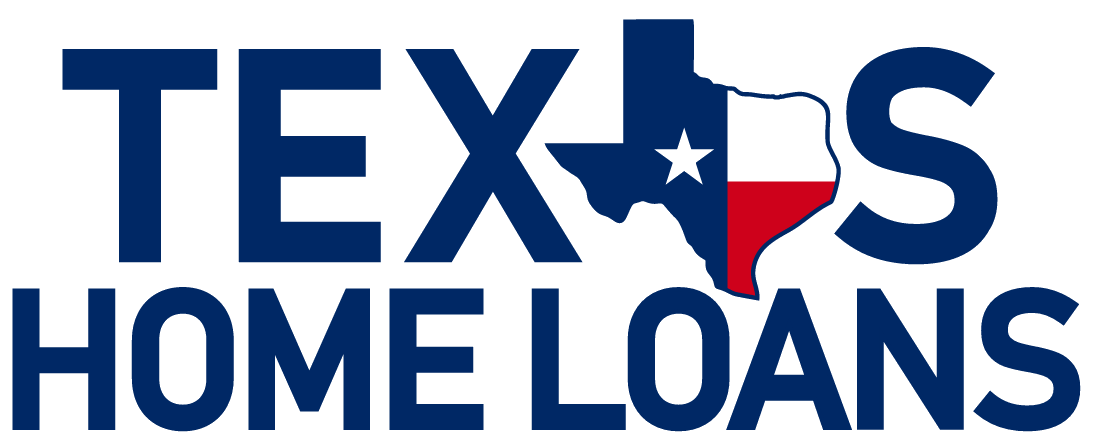Fluctuations in mortgage rates can significantly impact the housing market. Recently, there has been a…
Texas Living: How Location Impacts Your Mortgage Options
Navigating the complexities of real estate and mortgages in Texas requires an understanding of various factors. From the allure of urban living to the quaint charm of rural areas, the state offers a diverse landscape for potential homebuyers. The Texas State Affordable Housing Corporation and programs like the Mortgage Credit Certificate Program aim to support residents in their homeownership journey. Whether you’re considering a conventional loan or exploring options, expert advice is crucial. By delving into the nuances of mortgage rates, credit scores, and eligibility criteria, this guide aims to equip you with the knowledge needed to make informed decisions about Texas living and mortgage options.
Texas Real Estate: Urban vs. Rural Living
The decision to settle in the heart of a vibrant Texas city or embrace the tranquility of the countryside is a defining factor in your homeownership journey. Urban living offers proximity to amenities, cultural attractions, and often a wider range of job opportunities. Rural settings, however, provide spacious living, closer community ties, and potentially more affordable property prices. Each choice comes with financial considerations for potential homeowners. Urban areas may present higher property taxes, a competitive market driving up prices, and increased costs of living. Conversely, rural areas could offer more relaxed competition, lower property taxes, and access to USDA loans that require no down payment for eligible borrowers.
The Appeal of Urban Areas in Texas
The allure of urban living in Texas extends beyond the vibrant energy and cultural experiences. The continuous urban development fuels a competitive real estate market, often presenting opportunities to secure a mortgage at attractive market rates. As businesses thrive and job markets expand, urban areas attract a dynamic population, leading to a consistent demand for housing, making it a potentially lucrative investment.
Navigating the fast-paced urban real estate landscape is where a seasoned real estate agent becomes an invaluable asset. Their expertise extends to providing insights into neighborhood trends, competitive pricing strategies, and connecting you with lenders offering favorable terms. An experienced agent can streamline the process, helping you make informed decisions that align with your financial goals. However, it’s crucial to approach urban homebuying with awareness of the potential challenges. While market rates might be tempting, be prepared for higher property taxes, homeowner’s insurance premiums, and the potential for bidding wars in competitive markets, all of which can influence the overall affordability.
The Charm of Rural Texas
Venturing beyond the bustling cities reveals the captivating charm of rural Texas. The appeal of wide-open spaces, affordable property, and a slower pace of life draws many to these serene communities. One of the notable financial advantages lies in potentially lower property taxes compared to urban centers, making it an attractive option for budget-conscious buyers.
For those seeking financial assistance, programs like the Sweet Texas Home Loan Program can be a gateway to rural homeownership. This initiative offers competitive interest rates and down payment assistance, making homeownership attainable for individuals and families who might otherwise struggle with a large down payment. Beyond the financial benefits, the embrace of rural life extends to tight-knit communities, a slower pace of life, and access to nature’s serenity. Consider factors beyond the mortgage, such as commute times, access to amenities, and employment opportunities when envisioning yourself in a rural setting.
Mortgage Basics for Texas Homebuyers
Navigating the world of mortgages can feel overwhelming, but it’s manageable with a clear understanding of the basics. Before diving into the specifics of urban versus rural loans in Texas, familiarize yourself with fundamental mortgage concepts. This includes exploring the different types of mortgages available, understanding interest rates, deciphering closing costs, and recognizing the significance of a solid credit score.
Equipping yourself with this knowledge empowers you to make informed decisions and partner effectively with mortgage professionals. Whether you’re a seasoned homeowner or a first-time buyer, grasping these essentials provides a firm foundation for securing a mortgage that aligns with your financial situation and homeownership goals.
Types of Mortgages Available in Texas
The Texas housing market offers a range of mortgage options tailored to diverse financial situations, each with its own set of terms and eligibility criteria. A conventional loan, for instance, typically requires a higher credit score and a larger down payment, appealing to those with a stable financial history. It’s important to note that if your down payment is less than 20%, you’ll likely be required to pay private mortgage insurance (PMI), adding to your monthly expenses.
For those seeking lower down payment options, government-backed loans like FHA, VA, and USDA loans can be excellent alternatives. FHA loans, backed by the Federal Housing Administration, cater to those with lower credit scores, making homeownership accessible to a broader range of borrowers. VA loans, specifically for veterans and eligible surviving spouses, often require no down payment, while USDA loans, designed for rural property purchases, can offer zero-down-payment options to eligible applicants.
Thoroughly explore the terms, interest rates, and eligibility requirements of each mortgage type to determine the best fit for your circumstances. Consulting with a qualified mortgage lender can provide expert guidance and help you select a loan that aligns with your budget and long-term financial objectives.
Why VA Loans are a Popular Choice in Texas
Among the various mortgage loan programs available, VA Loans stand out as a beacon of support for eligible veterans, active-duty military personnel, and surviving spouses in Texas. Backed by the U.S. Department of Veterans Affairs, these loans offer distinct advantages that significantly impact affordability and accessibility for those who have served our nation. The Texas Department of Housing recognizes the unique needs of veterans and actively promotes the benefits of VA Loans, further contributing to their popularity.
One of the most enticing aspects of VA Loans is the potential for 100% financing, eliminating the need for a down payment, a substantial financial hurdle for many homebuyers. This feature makes transitioning to civilian life and achieving the dream of homeownership significantly smoother for veterans and their families. VA Loans also boast competitive interest rates, often lower than conventional loans, resulting in significant savings over the life of the loan.
The VA Loan program emphasizes support and flexibility beyond competitive terms. It provides leniency in credit score requirements compared to conventional loans, recognizing that financial hardships may arise during or after military service. The program also offers resources and counseling services to guide veterans through the intricacies of the mortgage process, ensuring they make informed decisions that align with their financial stability.
Texas LivingPreparing for Home Ownership in Texas
Transitioning from renter to homeowner requires careful financial preparation, especially in a dynamic market like Texas. Beyond the excitement of browsing properties and envisioning your future, it’s crucial to take a pragmatic approach. Start by creating a comprehensive budget that encompasses expected housing costs, including mortgage payments, property taxes, insurance, and potential maintenance expenses.
Equally important is a realistic assessment of your financial standing. Obtaining a copy of your credit report, understanding your credit score, and addressing any existing debt strategically strengthen your financial footing. Remember, preparation is key to navigating the homebuying process smoothly and securing a mortgage that aligns with your goals.
Financial Preparation for Urban vs. Rural Home Buying
Financial preparation takes on different nuances when considering urban versus rural home buying in Texas. Urban housing markets often come with a higher price tag, requiring a larger down payment and potentially steeper closing costs. Utilizing online resources like a mortgage calculator can help you estimate these expenses and adjust your savings goals accordingly.
In rural areas, while the property prices might be lower, factors like potential renovation costs to customize the property for your needs should be factored into your financial planning. Additionally, consider the availability of high-speed internet, utilities, and their associated costs, as these can vary significantly between urban and rural settings.
Regardless of location, explore potential first-time homebuyer programs and down payment assistance opportunities. Many cities and counties in Texas offer these programs to support homeownership, potentially easing some of the upfront financial burdens.
Evaluating Your Homeownership Readiness
Determining your homeownership readiness extends beyond financial capacity and involves honest self-reflection about your lifestyle, goals, and commitments. While the allure of owning a piece of the Texas landscape is enticing, it’s essential to evaluate if it aligns with your current life stage and future aspirations. Central to this assessment is understanding the significant financial commitment homeownership entails. Are you prepared for the responsibility of mortgage payments, property taxes, insurance, and potential maintenance costs? A solid credit score is a testament to your financial responsibility and will significantly influence your loan options and interest rates. If your credit score needs improvement, consider seeking guidance from a financial advisor or enrolling in a homebuyer education course to explore strategies for building a positive credit history.
Beyond finances, consider your lifestyle preferences. Are you seeking the convenience and excitement of urban living or the peace and spaciousness of a rural setting? Reflecting on these aspects ensures you’re making a well-rounded decision that complements your lifestyle.
Does Location Influence Your Loan Options?
The location of your potential home in Texas can significantly impact your mortgage options. Urban areas may offer a wider range of loan programs due to higher property values and increased demand, leading to more competitive rates. On the other hand, rural Texas may have more limited loan choices but might come with lower purchase prices and property taxes. Factors like community development initiatives and local real estate market conditions can also influence the availability of certain loan programs, such as state-specific assistance programs or special financing options. Understanding how location plays a role in your loan options can help you make informed decisions when navigating the home buying process in Texas.
Urban Living and Mortgage Availability
Living in urban areas in Texas provides a dynamic environment with easy access to amenities and services. When it comes to mortgages, urban residents have a plethora of options to choose from, including conventional loans, FHA loans, and VA loans. The competitive rates offered by lenders in cities like Austin make homeownership a viable option for many. Additionally, programs like the Texas State Affordable Housing Corporation and the Mortgage Credit Certificate program can provide financial assistance to urban homebuyers. Understanding the urban development landscape in Texas is crucial for selecting the right mortgage that suits your needs and financial situation. Make sure to explore all available options to find the best fit for your urban Texas living.
Rural Texas and Loan Accessibility
Rural Texas presents unique challenges in accessing loans due to limited options and financial resources in remote areas. The sparse population in rural regions can result in fewer financial institutions, impacting loan availability for potential homebuyers. Additionally, property appraisals in less urbanized areas might differ, affecting loan approval processes. Despite these obstacles, specialized programs like USDA loans cater to rural residents, offering low-interest rates and flexible eligibility criteria. Understanding the intricacies of loan accessibility in rural Texas is crucial for prospective homebuyers seeking financial assistance in these less densely populated areas.
Choosing the Right Loan For You
Choosing the right loan can feel like navigating a complex maze, especially for first-time homebuyers in Texas. Don’t let the myriad of options overwhelm you! Start by grounding yourself in the fundamentals. Understanding your financial situation – income, expenses, credit score – is paramount. This self-assessment equips you to engage in productive conversations with mortgage professionals and narrow down suitable loan options. Remember, knowledge is power in the home buying process. Equip yourself with information, ask questions, and remain confident in your decision-making.
Identifying What You Need to Get Started
To embark on your journey towards homeownership in Texas, start by familiarizing yourself with essential requirements. Understanding the minimum credit score, income limits, and eligibility criteria for various loan programs is crucial. Begin by assessing your financial standing, including monthly income and existing debts. Explore the different mortgage options such as conventional loans, FHA loans, VA loans, and USDA loans to determine which aligns best with your needs. Additionally, consider factors like property taxes, homeowners insurance, and closing costs that contribute to your overall expenses. Gathering all necessary documents such as credit reports, income statements, and identification proofs will streamline the loan application process.##
Step-by-Step Process to Selecting a Loan
Choosing the optimal mortgage loan from the diverse options available in Texas involves a systematic approach to ensure alignment with your financial situation and homeownership aspirations.
- Define Your Goals and Needs: Begin by clarifying your homeownership objectives. Are you a first-time buyer, or are you looking to upgrade to a larger property? Establish a realistic budget, considering your desired loan amount, down payment, and preferred monthly mortgage payment.
- Research Loan Types: Explore the various mortgage loan types available, such as conventional, FHA, VA, and USDA loans. Each caters to different borrower profiles, offering distinct terms, interest rates, and eligibility criteria.
- Shop Around for Rates: Obtain quotes from multiple lenders to compare their offerings, including interest rates, closing costs, and loan terms. Don’t settle for the first offer you receive; due diligence often leads to substantial savings.
Navigating this journey with the guidance of an experienced mortgage expert can prove invaluable. Their expertise helps you navigate the complexities of choosing the most suitable mortgage loan, ensuring a smooth and successful home buying journey.
VA Loans: A Closer Look for Texas Veterans
Benefits of VA Loans for Texas Veterans extend beyond traditional mortgage options. These government-backed loans offer Texas veterans favorable terms and benefits. As a Texas veteran, accessing VA loans can mean lower interest rates, reduced down payment requirements, and in some cases, no requirement for private mortgage insurance. The Department of Veterans Affairs facilitates VA loans, ensuring Texas veterans receive support and guidance throughout the loan process. By utilizing VA loans, Texas veterans can navigate the real estate market with assistance tailored to their needs, making the dream of homeownership more achievable and affordable. Understanding the specifics of VA loans equips Texas veterans with valuable insights to make informed decisions regarding their mortgage options.
Benefits of VA Loans for Texas Veterans
VA loans offer numerous advantages for Texas veterans, including competitive rates and no down payment requirement. Texas veterans can secure financing without the need for private mortgage insurance, reducing monthly expenses. The program allows for higher debt-to-income ratios compared to traditional loans, which can benefit those with lower credit scores. VA loans also have lenient eligibility criteria and don’t impose prepayment penalties, providing flexibility to veterans. Additionally, veterans may qualify for lower closing costs, making homeownership more affordable. Utilizing VA loans can be a smart financial move for Texas veterans, offering savings and benefits tailored to support their homeownership goals.
How to Apply for a VA Loan in Texas
To apply for a VA loan in Texas, start by verifying your eligibility through the Department of Veterans Affairs. Gather essential documents like proof of military service, income statements, and credit history. Choose a VA lender and complete their application process. The lender will review your finances, employment history, and credit score. Once approved, finalize the loan terms and the home buying process can commence. VA loans offer benefits like no down payment requirement and competitive interest rates for Texas veterans, making them a favorable option for many. By following the application steps diligently, Texas veterans can make the most of VA loan benefits and achieve their homeownership dreams.
Credit Scores in Urban vs. Rural Loans
Credit scores wield significant influence in the mortgage landscape, whether you’re drawn to the allure of urban living or the tranquility of rural Texas. Lenders view your credit score as a gauge of financial responsibility, influencing your loan options and interest rates. A higher score often unlocks access to more favorable terms and a wider selection of mortgage products.
Understanding Credit Requirements for Different Areas
While your credit score is a significant factor when securing a mortgage loan, it’s essential to recognize that minimum credit score requirements can differ between urban and rural lenders in Texas. Urban areas, with a higher concentration of large banks and financial institutions, might have stricter credit guidelines, especially for conventional loans. These loans typically demand higher scores to mitigate risk for the lender.
Rural areas, often served by smaller banks or credit unions deeply rooted in the community, might offer more flexibility in their credit requirements, especially for loans geared toward rural development or first-time homebuyers. However, it’s crucial to note that while credit score minimums might vary, maintaining a good credit history is universally advantageous.
Regardless of location, a higher credit score often translates to access to more competitive interest rates and favorable loan terms across both urban and rural lending environments.
Strategies to Improve Your Credit Score Before Applying
If your credit score needs a boost before applying for a mortgage, implementing proactive strategies can improve your creditworthiness in the eyes of lenders. Start by obtaining a copy of your credit report from all three major credit bureaus and scrutinize it for any inaccuracies or errors. Dispute any discrepancies you find, as they could be dragging down your score unnecessarily.
Next, focus on reducing your credit utilization rate, which measures the amount of credit you’re using compared to your total available credit limit. Aim to keep your utilization rate below 30%. Consider making more frequent payments towards your outstanding balances to positively influence this ratio. Homebuyer education courses or workshops often offer valuable insights into credit management and debt reduction strategies.
Lastly, practice patience and consistency. Building a positive credit history takes time and diligent effort. Avoid opening multiple credit accounts in a short period, as this can signal financial instability to lenders. Maintain a steady payment history by paying all bills on time, demonstrating responsible financial behavior.
Frequently Asked Questions
How does the location of a property in Texas affect mortgage rates and options?
Mortgage rates and options can vary by location due to factors like property values, housing market competition, and lender availability. The Texas Department of Housing provides resources highlighting location-specific programs that influence interest rates for certain mortgage loans.
How Does Living in Urban vs. Rural Areas Affect Loan Eligibility?
Loan eligibility in urban vs. rural Texas depends on factors like lender requirements, available programs (e.g., Texas Mortgage Credit Certificate), and local payment assistance programs, impacted by factors like household income and property location.
How does the cost of living in different areas of Texas affect mortgage affordability?
Areas with a higher cost of living impact mortgage affordability. Beyond the purchase price, factors like property taxes, utilities, and insurance, often influenced by Community Affairs guidelines, contribute to your monthly payment and overall affordability.
Are There Differences in Down Payment Requirements by Location?
Down payment requirements can vary based on location-specific programs, like the Choice Texas Home program. Some programs offer reduced down payments for first-time homebuyers within specific geographic areas or income limits, potentially impacting the purchase price limit of your first home.
Conclusion
Location plays a significant role in determining your mortgage options when buying a home in Texas. Whether you prefer the urban buzz or the tranquility of rural life, understanding how location impacts loan accessibility and rates is crucial. Urban areas offer convenience, while rural settings provide charm, each influencing mortgage availability differently. It’s essential to assess your financial readiness based on your chosen setting and credit score requirements. By evaluating these factors, you can make informed decisions when selecting the right loan for your Texas home purchase. Invest time in understanding the nuances of urban versus rural living to secure a mortgage that aligns with your lifestyle and financial goals.






